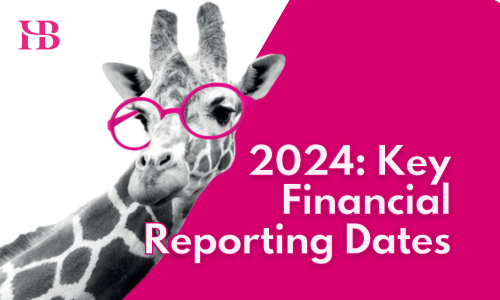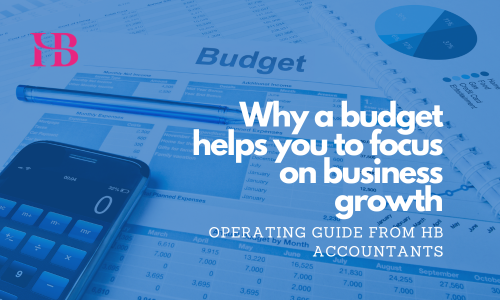Finance Directors and Business Owners watch out for these key financial reporting dates and for new employment legislation also being introduced in 2024

Tax deadlines
Self Assessments
You can file your 2023-24 Self Assessment tax return anytime after 6th April 2024 but you must file before:
- 31st October 2024 following the end of the tax year for a paper return
- 31st January 2025 following the end of the tax year for an online return
New to self-employment?
If you start a new self employed business in the 2023-2024 tax year, you must notify HMRC about potential tax and National Insurance Contributions by 5th October 2024.
New partner joins your partnership?
If a new partner has joined your partnership in the 2023/24 tax year, you should notify HMRC by 5th October 2024.
UK VAT
To avoid late payment penalties businesses must pay or set up Time To Pay arrangements for VAT within 15 days of the payment due date – this has changed from the 30 days allowed in 2023.
National Minimum Wage rate increase
The national living wage is now payable to 21-year-olds.
All national minimum wage rates increase from 1st April 2024 to:
- Workers aged 21 or over (the national living wage) increases to £11.44 per hour (previously £10.42 for workers aged 23 or over)
- Workers aged at least 18 but under 21 increases to £8.60 per hour (from £7.49)
- The rate for workers aged 16 to 17 and apprentices increases to £6.40 (from £5.28)
Payroll Deadlines
6 April 2024: Update employee payroll records for the new tax year
19 April 2024: Submit your final Full Payment Summary and Employer payment summary for the year ended 5 April 2023 and pay any tax/NIC due for the year.
31 May 2024: Give a P60 to all employees on your payroll who are working for you on the last day of the tax year
6 July 2024: Report employee expenses and benefits
19 July 2024: Pay Class 1A NICs by post
22 July 2024: Pay Class 1A NICs electronically
New Employment Legislation
Be aware of the following legislation which will impact your employees and payroll.
Changes to paternity leave for fathers and partners in England, Scotland and Wales
For children born or adopted on or after 6th April 2024. Fathers and partners need only give 28 days notice of their intention to take paternity leave, can take one or two weeks at a time up to a total of two weeks, and can take this paid leave at any point in the first year after the birth or adoption of a child.
Previously, they could only take leave within the first eight weeks when they had to choose to take either one or two weeks.
Holiday Entitlement
From 1st April, 2024 holiday entitlement for workers on irregular hours will be calculated at 12.07% of hours worked in a pay period. This applies in England, Scotland and Wales as part of the Employment Rights (Amendment, Revocation and Transitional Provision) Regulations 2023.
Leave for Carers
From 6th April 2024, employees who are providing or arranging care for a dependant with a long-term care need are entitled to one week of unpaid leave per year.
A person is a dependant of an employee if they:
- Are a spouse, civil partner, child or parent of the employee
- Reasonable rely on the employee to provide or arrange care
Changes to Statutory Flexible Working Request Rules
It is expected that from April 2024, employees will be able to make two requests for flexible working in a 12-month period. The employer must notify the employee of its decision within two months. The right to request flexible working will become a day one right (instead of a right only available to employees who have 26 weeks’ employment).
Protection from Redundancy: Pregnancy and Family leave
Currently, parents on maternity, adoption, or shared parental leave should have first refusal of any suitable alternative employment when they are put at risk of redundancy.
From 6 April 2024, this protection from redundancy is extended.
- Maternity – the protected period is now up to 18 months from the first day of the estimated week of childbirth, and can be to 18 months from the exact date of birth.
- Adoption – the protected period will cover 18 months from placement for adoption.
- Shared parental leave – the protected period will cover 18 months from birth, provided that the parent has taken a period of at least 6 consecutive weeks of shared parental leave.
Employers must give all tips to workers without deductions and ensure they are distributed fairly.This ruling is expected from May 2024 onwards.
Temporary workers and those on zero hour contracts Will have the right to request more predictable terms and conditions of work from September 2024.
HB Accountants is here to support your business and personal finances. We offer lots of support for business owners, alongside accountancy, tax, audit and payroll.
For more information about all the ways HB goes above and beyond for you, your company and our community, contact the team at HB Accountants. We’re here to help
The information contained above is for general guidance purposes only. Whilst every effort has been made to ensure the contents are accurate, please note that each individual has different circumstances and it is essential that you seek appropriate professional advice before you act on any of the information contained herein. HB Accountants can accept no liability for any errors
Read our latest blogs below
- HMRC Advisory Fuel Rates (AFRs) from 1st June 2025
 HMRC has published the latest Advisory Fuel Rates (AFRs) which apply from 1 June 2025. AFRs are the official rates used when reimbursing employees for business mileage in company cars. They’re reviewed every quarter (February, May, August and November) and adjusted in line with fuel prices.
HMRC has published the latest Advisory Fuel Rates (AFRs) which apply from 1 June 2025. AFRs are the official rates used when reimbursing employees for business mileage in company cars. They’re reviewed every quarter (February, May, August and November) and adjusted in line with fuel prices. - How an audit can help your business (and actions you can take to make it go smoothly too!)
 An audit may be a legal requirement for your business but a well managed audit can also boost your business growth and ensure that it is operating in the best way possible.
An audit may be a legal requirement for your business but a well managed audit can also boost your business growth and ensure that it is operating in the best way possible. - Why a budget helps you to focus on business growth
 Are you looking for clarity over the future direction of your business? Do you want to know the actions you should take in order to grow your business? Then consider taking time to create a budget for your business.
Are you looking for clarity over the future direction of your business? Do you want to know the actions you should take in order to grow your business? Then consider taking time to create a budget for your business. - How a SME Owner Can Create More Time
 SME owners and managers – are you part of the one in five small and medium-size enterprise managers that work on average an additional 3 hours a day on a regular basis? Or one of the 33% that claim that there just aren’t enough minutes in a day to get everything completed? (The Independent study … Continue reading
SME owners and managers – are you part of the one in five small and medium-size enterprise managers that work on average an additional 3 hours a day on a regular basis? Or one of the 33% that claim that there just aren’t enough minutes in a day to get everything completed? (The Independent study … Continue reading - A New Academic Year for our Student in Zambia
 As the new academic year unfolds in Zambia, we are delighted to share an update about our sponsored student, Getrude. Currently in her second year at Chalimbana University, Gertrude is studying Business Administration in Accounting and Finance.
As the new academic year unfolds in Zambia, we are delighted to share an update about our sponsored student, Getrude. Currently in her second year at Chalimbana University, Gertrude is studying Business Administration in Accounting and Finance.

